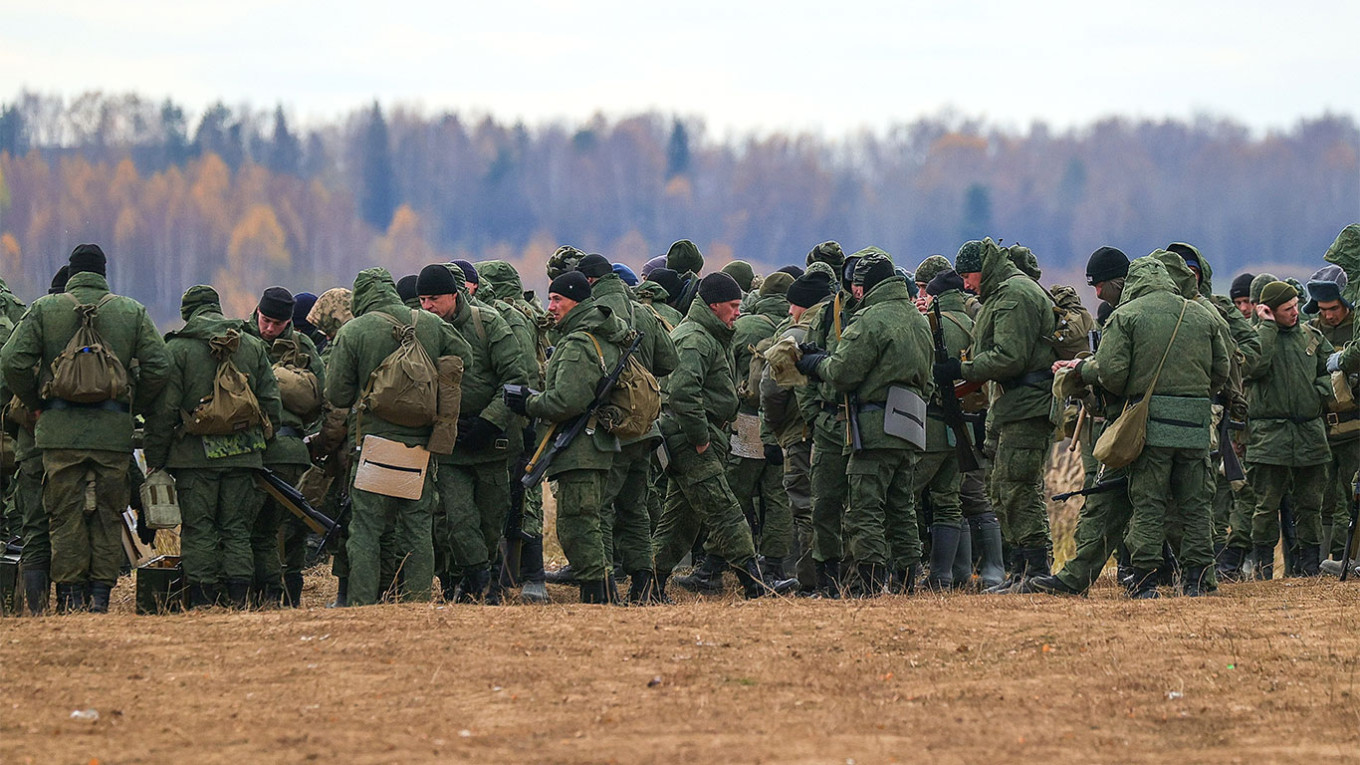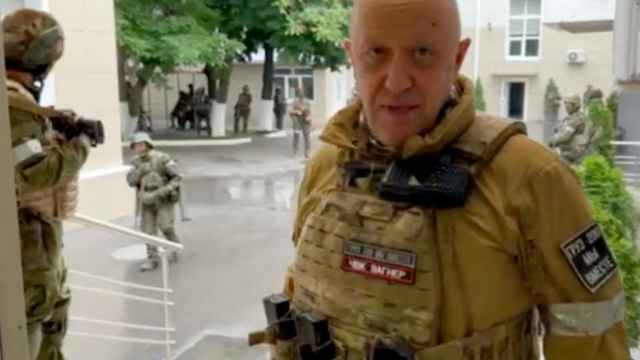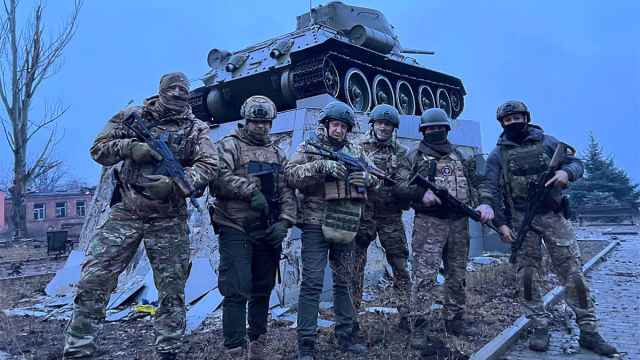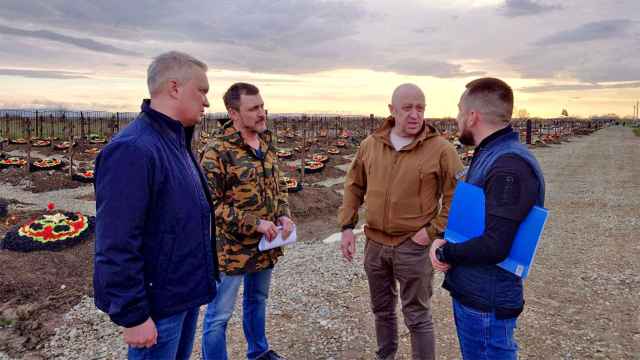Andrei had been serving his second prison term in St. Petersburg for car theft when he was released and sent to the frontline in Ukraine.
The 22-year-old is one of the thousands of Russian inmates believed to have been recruited to fight in the war by Russia’s notorious Wagner group, being offered a reduced sentence in return – but his relatives claim he was sent to fight against his will.
“The conditions in prison were horrible, but Andrei reassured me earlier that he wouldn’t go anywhere — that he’s a thief, not a murderer,” his aunt Yana told The Moscow Times.
“He was not interested in politics and Ukraine, he said that he wanted to live for himself and wouldn’t die for others' interests,” said Yana, who declined to provide her last name over fears for her safety.
Since late June, a growing number of reports have emerged of Russian prisoners — including murderers, rapists and even a convicted cannibal — being illegally recruited by Wagner to fight in Ukraine in a bid to solve Moscow’s manpower shortage.
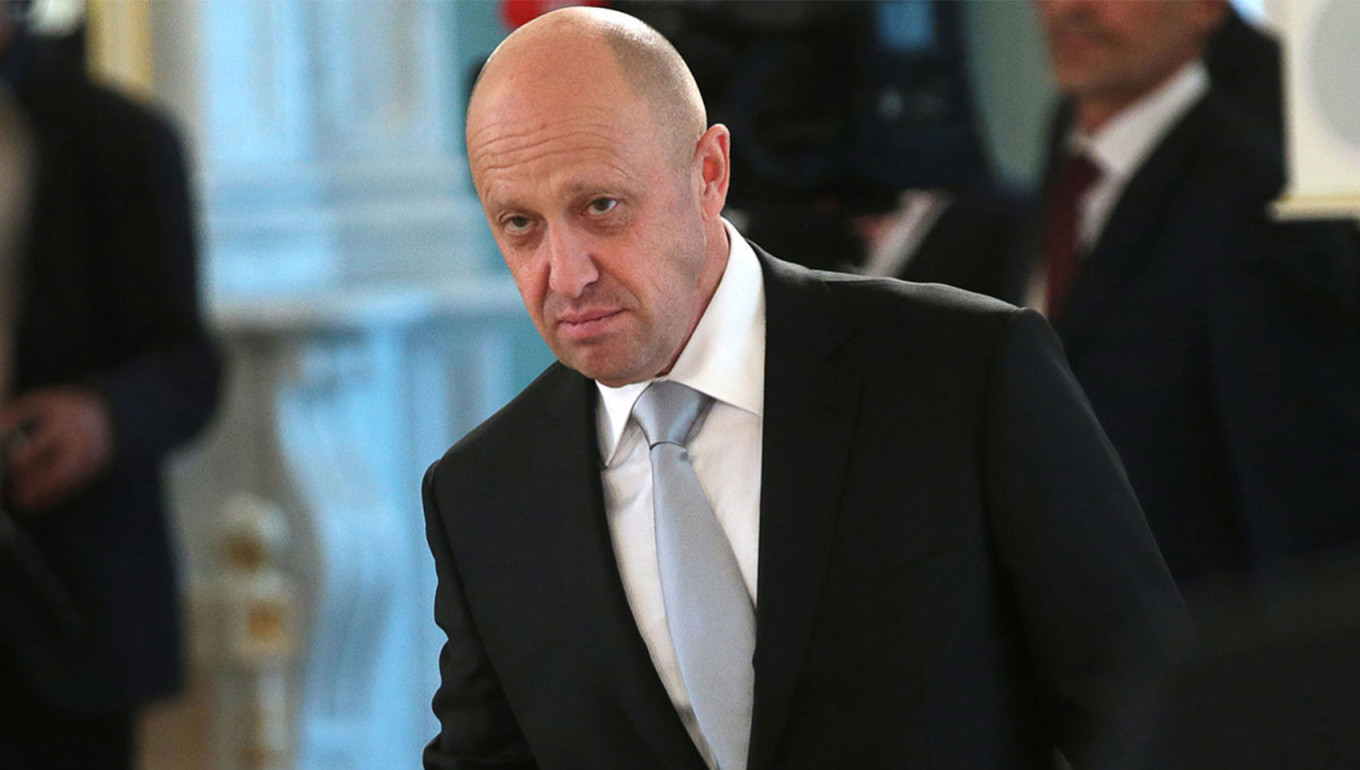
Simultaneously, the Wagner group, run by the Kremlin-linked magnate Yevgeny Prigozhin, has been growing increasingly visible after years of operating in the shadows as a secret military force.
Several videos filmed in prisons and posted on social media in recent months have shown a man closely resembling Prigozhin attempting to recruit inmates by promising them their release in exchange for a six-month tour of duty in Ukraine.
Despite the risk of being killed and the harsh conditions — “no one falls back, no one retreats, no one surrenders” — Wagner, which is technically illegal under Russian law, has recruited 20,000 inmates in Russia to date, according to Olga Romanova, the head of prison-monitoring NGO Russia Behind Bars.
“If you go with us, there’s no way back. No one will return to prison,” Prigozhin can be seen telling inmates in a video taken just weeks after he finally admitted to founding Wagner in 2014, following years of denial.
“Obviously if I was an inmate, I could only dream of joining this friendly team, of having a chance to not only atone for your homeland, but to repay the debt fully,” he said in a statement last month.
While prisoners were attracted by potential pardons, they were also promised monthly payments ranging from 100,000 ($1,628) to 200,000 rubles ($3,256), Romanova said.
“Of course, they want freedom. Any place in the world is better than a Russian prison,” Romanova told The Moscow Times.
Russian law does not allow prisoners to be released in exchange for military or mercenary service. But the Prigozhin-linked media outlet RIA FAN published a video this month in which former convicts were shown being granted pardons after being injured “in the fighting.”
Also this month, Russian lawmakers proposed a bill that would allow prisoners enlisting to fight in Ukraine to have their sentences commuted. On Thursday, Russia’s lower house of parliament approved legislation allowing the recruitment of those who had an unexpunged or outstanding conviction, including those who committed a serious crime.
Despite Russia's "partial" mobilization last month aiming to shore up the military's manpower, the Defense Ministry also appears to have been recruiting convicts jointly with Wagner since that time, the independent iStories media outlet reported.
One Russian woman told iStories that the ministry recruited her relative to the war while he was serving his prison term in the southern Stavropol region.
“Wagner was created by the Defense Ministry in collaboration with Prigozhin,” former Wagner fighter Marat Gabidullin told The Moscow Times.
For Wagner, the effort to recruit from Russia’s prison yard appears to be a way to avoid losing its more experienced soldiers, said Gabidullin, who published a book about his experiences — Moi Marat, ex-Commandant de l'armee Wagner (“I, Marat, ex-Commander in the Wagner Army”).
“They have no desire to waste their veterans in this war,” he added.
According to Russia Behind Bars, Prigozhin visited colony No. 4 in the Vologda region last week in the hopes of recruiting 160 prisoners to Wagner, while media reports suggest that Wagner is also recruiting people in Turkmenistan, Afghanistan and Kyrgyzstan to join the Russian military.
Human rights activists say that in some cases prisoners are forced to join the mercenary group.
“There are cases of coercion if a prisoner is a young athlete or someone who has undergone military training. They are almost forcibly taken as a valuable resource,” Romanova told The Moscow Times.
Yana, the aunt of 22-year-old prison recruit Andrei, said that her family sent multiple requests to the local authorities and to Andrei’s prison in the hope of bringing her nephew back from Ukraine, but that the authorities had so far not revealed his location.
Some of those recruited have issued calls to their fellow inmates to join them.
“If they invite you — jump at the opportunity and go [to war],” said one apparent former prisoner recruited by Wagner. “We have everything there in abundance. Food, weapons, and a healthy lifestyle,” said another man in the video.
However, other prisoners recruited by Wagner have painted a different picture.
“I realized [that we were] cannon fodder. If you don’t follow some orders, don’t do something — they reset you to zero. Shoot you to death,” said a man captured by Ukrainian forces who identified himself as Yevgeny Nuzhin and said he was a former prisoner in Russia’s Nizhny Novgorod region.
According to Yana, only 10 of the 46 inmates from her nephew’s prison who went to war survived.
“He’s horrified by what is happening in Ukraine and he’s asking me to bring him back,” Yana told The Moscow Times. “I don’t believe it’s possible — everything has been agreed at a high level.”
“But I will still seek the punishment of those responsible,” she said.
“I won’t give up even if he dies.”
A Message from The Moscow Times:
Dear readers,
We are facing unprecedented challenges. Russia's Prosecutor General's Office has designated The Moscow Times as an "undesirable" organization, criminalizing our work and putting our staff at risk of prosecution. This follows our earlier unjust labeling as a "foreign agent."
These actions are direct attempts to silence independent journalism in Russia. The authorities claim our work "discredits the decisions of the Russian leadership." We see things differently: we strive to provide accurate, unbiased reporting on Russia.
We, the journalists of The Moscow Times, refuse to be silenced. But to continue our work, we need your help.
Your support, no matter how small, makes a world of difference. If you can, please support us monthly starting from just $2. It's quick to set up, and every contribution makes a significant impact.
By supporting The Moscow Times, you're defending open, independent journalism in the face of repression. Thank you for standing with us.
Remind me later.


